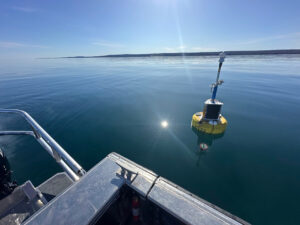Extech 1/4 DIN Temperature PID Controller
Features
- Eliminates over-shoot, unwanted process fluctuations, and drift
- Fuzzy Logic PID, Auto tuning, and Soft Start features
- 9 selections for thermocouple input type and 2 selections for RTD input with no hardware modification
- Free ground shipping
- Expedited repair and warranty service
- Lifetime technical support
- More
Overview
The Extech 96VFL13 protects heaters from cold-starts by ensuring exact and slow heating of the product. PID with Fuzzy Logic eliminates over-shoot, unwanted process fluctuations, and drift. Soft Start provides careful, exact, and slow heating of the product which is ideal for Thermo-Plastic industry settings.
Design
Other features include a 4-digit LED display, easy navigation with a user-friendly menu and keypad, and one-touch auto tuning for quick setup and stable control. The controller features nine selections for thermocouple input type and 2 selections for RTD input without needing hardware modification.
- Thermocouple inputs type K: -58 to 2498°F (-50 to 1370°C)
- Thermocouple inputs type J: -58 to 1832°F (-50 to 1000°C)
- Thermocouple inputs type B: 32 to 3272°F ( 0 to 1800°C)
- Thermocouple inputs type T: -454 to 752°F (-270 to 400°C)
- Thermocouple inputs type E: -58 to 1382°F (-50 to 750°C)
- Thermocouple inputs type R or S: 32 to 3182°F ( 0 to 1750°C)
- Thermocouple inputs type N: -58 to 2372°F (-50 to 1300°C)
- Thermocouple inputs type C: -58 to 3272°F (-50 to 1800°C)
- Thermocouple inputs PT100Ω RTD (DIN): -328 to 1652°F (-200 to 850°C)
- Thermcouple inputs PT100Ω RTD (JIS): -328 to 1202°F (-200 to 650°C)
- Control/alarm relay: 5 Amp @ 110V, SPST (resistive load)
- DC current output: 4-20mA (resistive); Impedance < 600 ohms
- Accuracy: Thermocouple: ±1.8°F (1ºC); RTD: ±0.36°F (0.2ºC)
- Sampling time: Four (4) samples per second
- LED status: Alarm and Control output status
- Control modes: Fuzzy Logic enhanced three-term PID with Auto Tune
- Proportional band: 0 to 300.0%
- Integral time: 0 to 3600 seconds
- Derivative time: 0 to 900 seconds
- Hysteresis: 0.0 to 200.0 or 0.0 to 2000
- Cycle time: 1 to 100 seconds
- Front panel: Lexan construction, Drip/Dust proof; IR rating: IEC IP63
- Power supply: 90 to 264 VAC; 50/60 Hz (< 5VA power consumption)
- (1) Mounting bracket hardware
- (1) Set of screw terminals
In The News
Save our Bogs! Culture, Conservation and Climate Action in Ireland’s Peatlands
Characterized by long-term accumulation under waterlogged conditions, peatlands exist on every continent and account for 3-4% of the global land surface . Small but mighty, these often overlooked wetland environments are estimated to hold as much as one-third of the world's organic carbon in their soil—twice the amount found in the entirety of the Earth's forest biomass. While healthy peatlands can trap and store carbon, regulate water, and provide important habitats for rare species, human alteration has disturbed peatland carbon and nitrogen cycles on a global scale. Approximately 12% of the world’s peatlands have been drained and degraded through conversion for agriculture, forestry, infrastructure development, and other uses.
Read MoreSargassum Surge: How Seaweed is Transforming our Oceans and Coastal Ecosystems
Until recently, Sargassum –a free-floating seaweed–was distributed throughout the Sargasso Sea , the north Caribbean Sea, and the Gulf of Mexico. But in the space of a decade, this seaweed has, as one scientist remarks , “Gone from a nonfactor to the source of a terrible crisis.” Driven by climate change, anomalous North Atlantic Oscillation in 2009-2010 and a glut of anthropogenic pollutants, sargassum has proliferated. Seasonally recurrent mats as deep as 7m now bloom in the “Great Atlantic Sargassum Belt” (GASB), which covers areas of the Atlantic from West Africa to the Caribbean Sea and Gulf of Mexico. Every year, millions of tons wash up along the shores of more than 30 countries . Dr.
Read MoreGreat Lakes Research Center: Designing Targeted Monitoring Solutions
According to the National Oceanic and Atmospheric Administration ( NOAA ), the Great Lakes have more miles of coastline than the contiguous Atlantic and Pacific coasts combined and contain 20 percent of the world's freshwater, making it a critical region to protect and conserve. Continuous monitoring and data-informed resource management are key components of managing waters in the region. Hayden Henderson, a research engineer with the Great Lakes Research Center (GLRC), designs and deploys monitoring platforms throughout the Great Lakes. With a background in environmental engineering, Henderson enjoyed the challenge of creating systems and making them work to obtain difficult, remote measurements.
Read More








